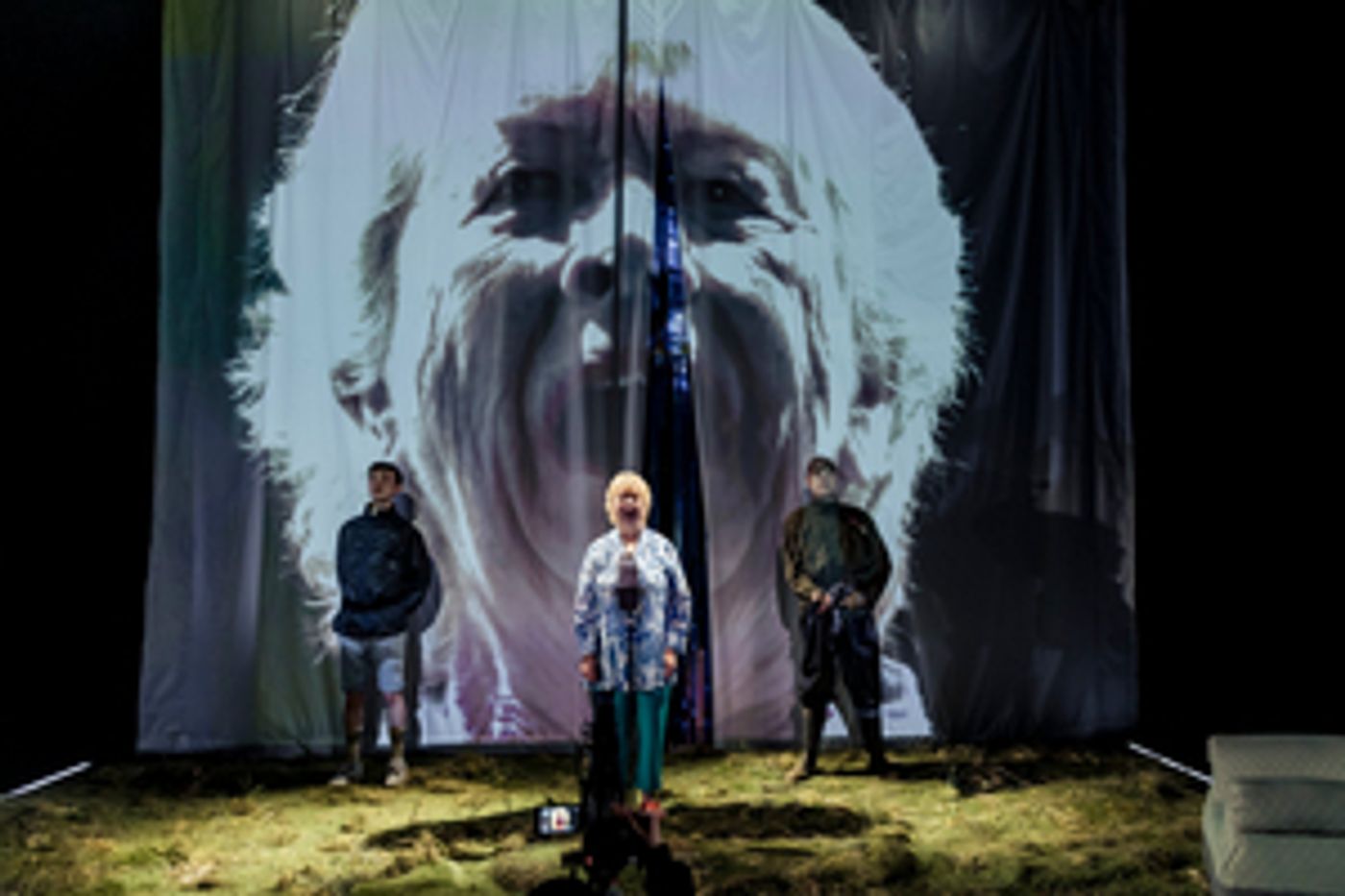Review: O, ISLAND!, The Other Place, Royal Shakespeare Theatre
A new play that takes aim at some familiar targets but, hindered by a lack of subtlety, largely misses

 In a village (or a 'very very very small town') the river, hitherto unremarkable, bursts its banks, floods its surrounds and, slowly but surely, a new island emerges, soon to be a brave new world. Once the local MP, Leonard (played broad, but not without an oily charm by Alex Bhat), decides that an heroic photo-opportunity is not going to materialise and gets served with a brutal takedown by the elderly Margaret (hazard your own guess as to the surname), he pushes off and the islanders get their wish to be left to their own devices. Despite the ambition being rather more widely shared than 52% plays 48%, things do not go well.
In a village (or a 'very very very small town') the river, hitherto unremarkable, bursts its banks, floods its surrounds and, slowly but surely, a new island emerges, soon to be a brave new world. Once the local MP, Leonard (played broad, but not without an oily charm by Alex Bhat), decides that an heroic photo-opportunity is not going to materialise and gets served with a brutal takedown by the elderly Margaret (hazard your own guess as to the surname), he pushes off and the islanders get their wish to be left to their own devices. Despite the ambition being rather more widely shared than 52% plays 48%, things do not go well.
Nor does the play, writer, Nina Segal, dispenses with the early laughs and goes for a black comic allegory that sits somewhere between Lord of the Flies and The Wicker Man - but the tone never settles into a space that allows the conceit to frighten us or amuse us as consistently as it should. Once Margaret reveals her (not entirely unexpected) authoritarian tendencies, the slide into a dystopian nightmare proceeds with a grim predictability that softens the shocks and spikes the jokes.
The play is not helped by its frequent speechifying in which screeds of exposition and description swamp the narrative. Director, Guy Jones, and designer, Milla Clarke, are showing us the collapse into fascism (uniforms, torches, parades etc) so we don't need the characters to tell us, often repeatedly, that there is a them and us divide, underpinned by violence in an increasingly totalitarian state. If we thought it was all about Brexit, we get reports of kids in cages and a wall to remind us that the satire has targets across the Atlantic too - it's all a little too heavy-handed.
The actors do what they can with a script that sometimes has the angry tenor of an undergraduate rant, Joe Barber eliciting our sympathy as a good kid in a bad place and Anna Andresen, inexplicably allowed into this closed community as a documentary filmmaker, acting as our guide, until changing (but not changing) character in the last scene before a hopeful epilogue.
Ultimately, the challenge of trying to say something new (or something subtle) with this tired scenario overpowers the warning that the play provides as the metaphorical waters rise around the UK and its leaders continue, ever more desperately, to sell an exceptionalism that received a popular mandate less than three years ago but is souring day-by-day. But, as will be the case when the current government leaves office, I was just relieved when the play stopped and I could think of something else.
O' Island! is at The Other Place, Royal Shakespeare Theatre
Photo Credit: The Other Richard
Reader Reviews
Videos

